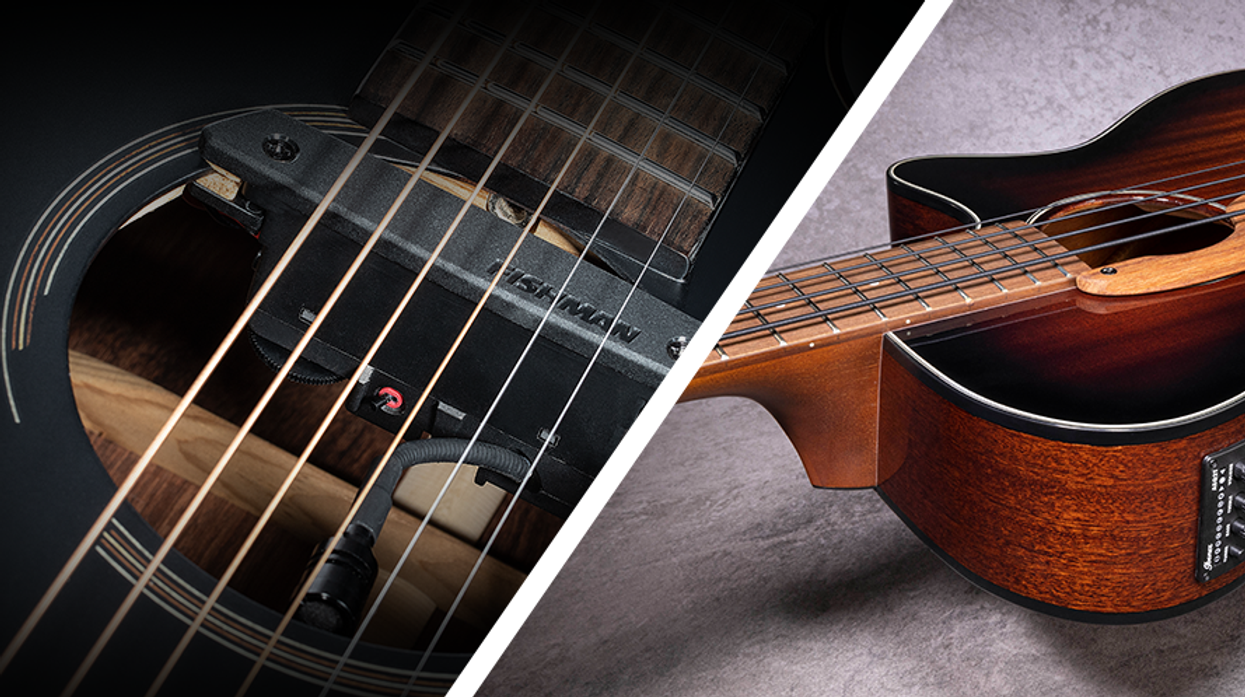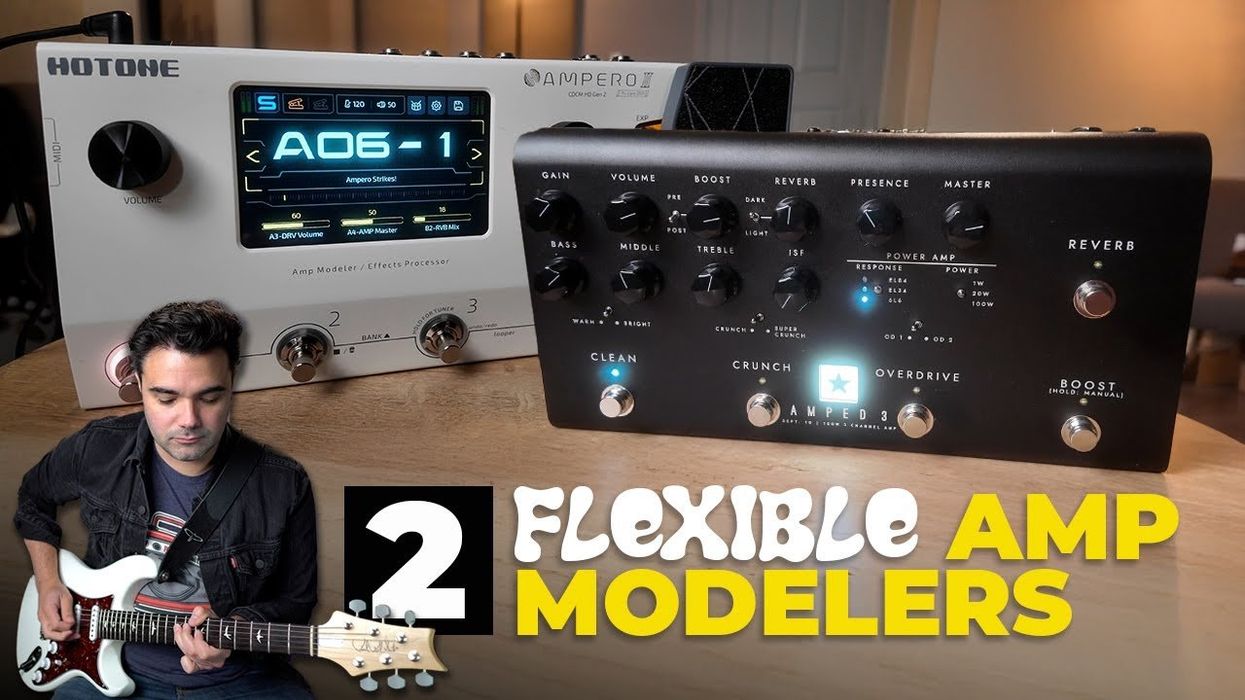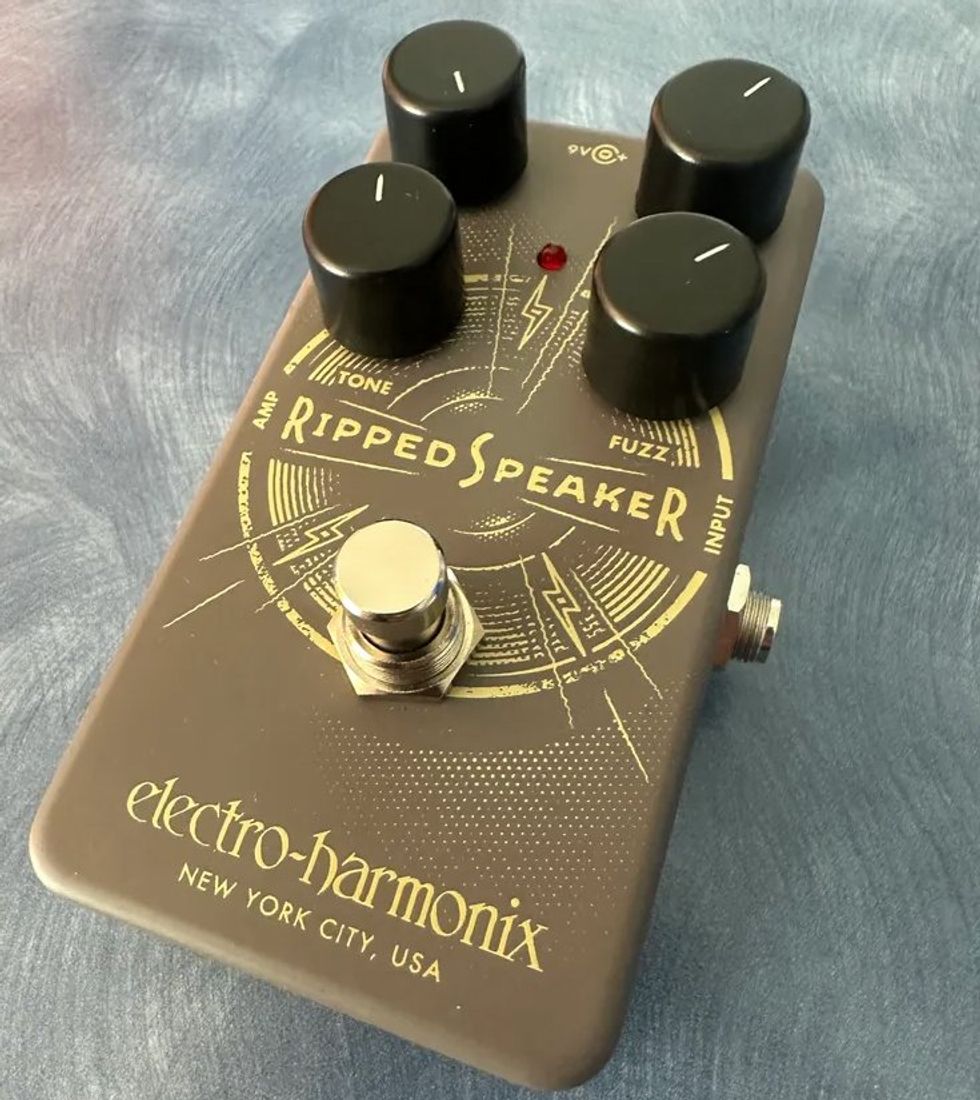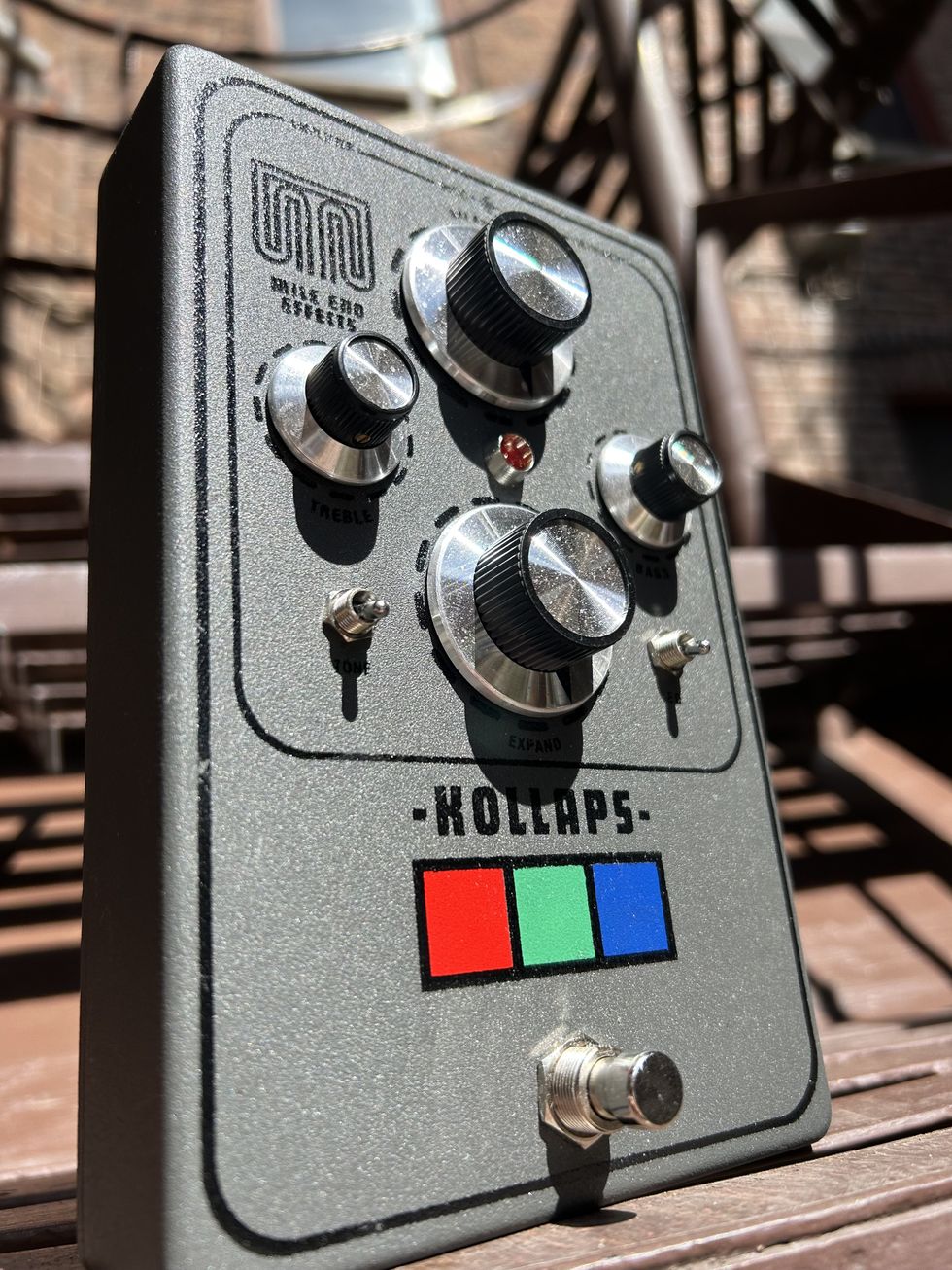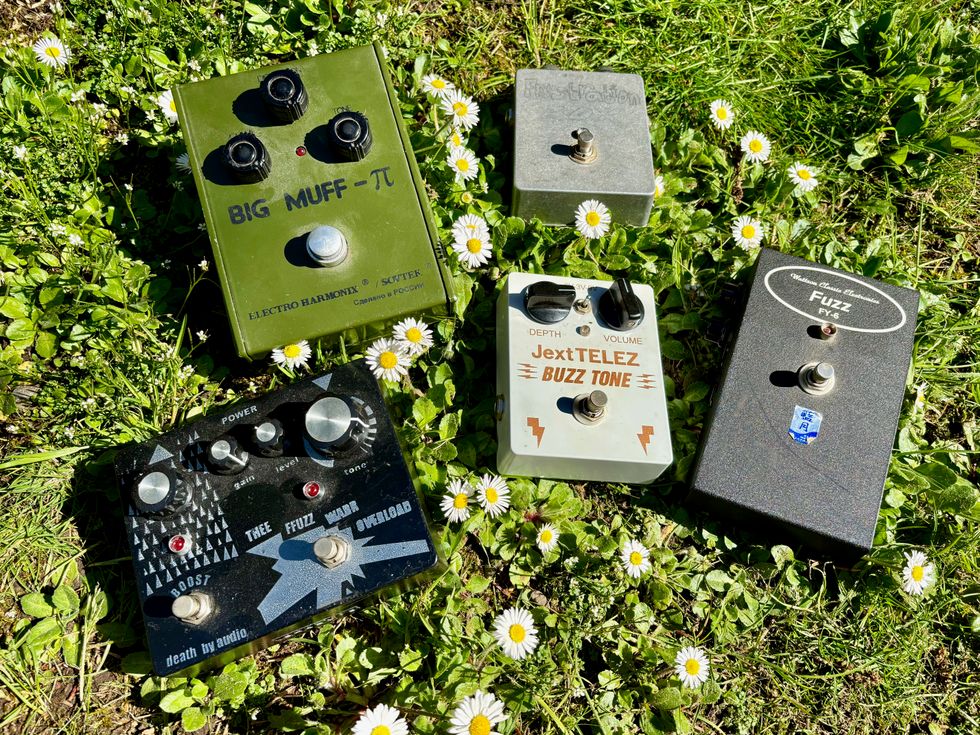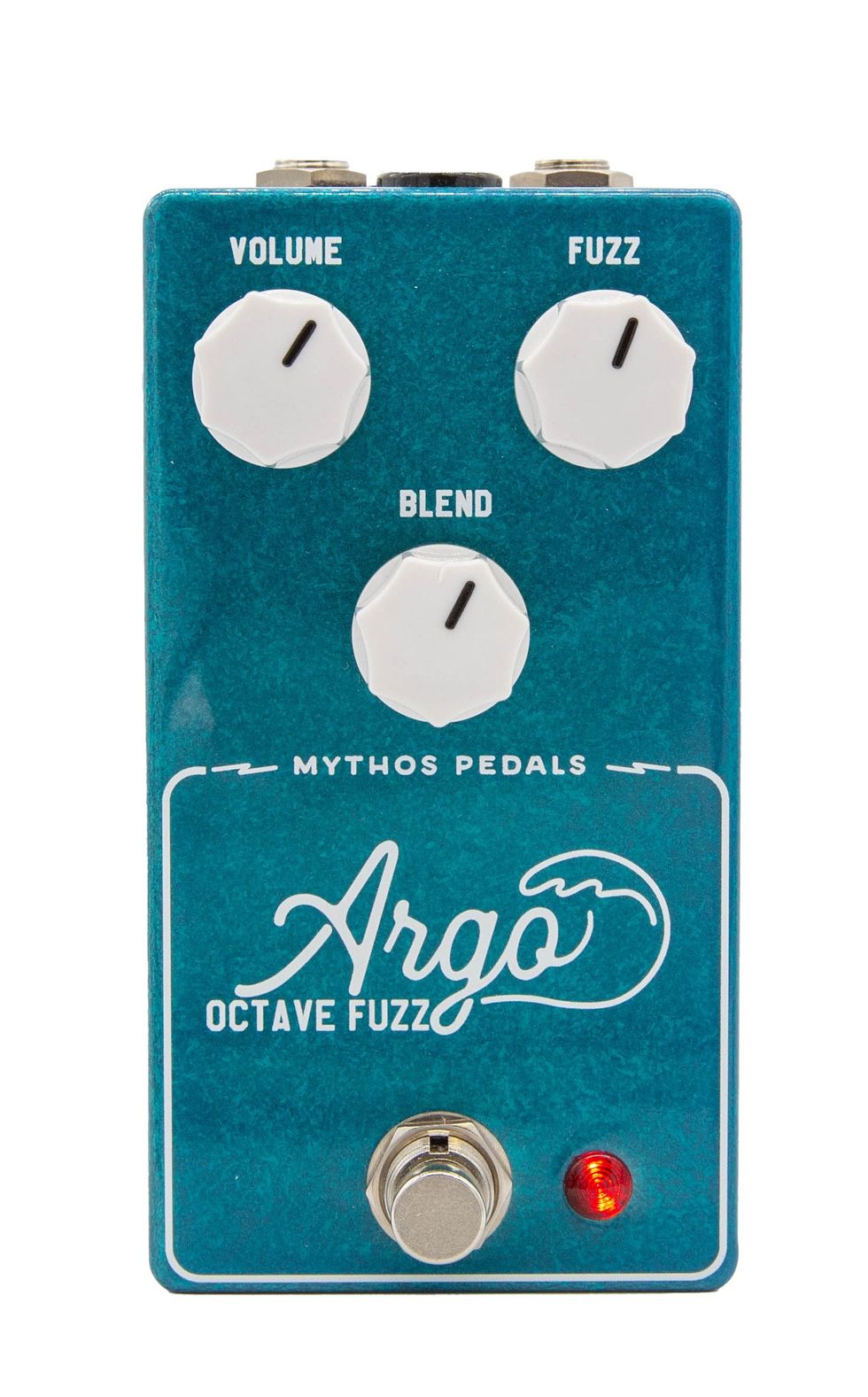I recently found myself in a spot. There I was,
sitting in my home studio, tracking away, and
suddenly I just stopped playing. I hit a brick
wall on several fronts: musically, creatively,
and tonally. I came to three very quick and
harsh conclusions: First, when I write songs
and record the demos, I spend very little of
that time actually holding my beloved bass.
Second, because of this I feel my creativity
slips when I don’t get enough time to play.
Third, my tone wasn’t where I heard it in my
head. All of these combined to make a deadly
cocktail, but after I walked away from every
thing for a few minutes, I came to some realizations on how I might address these problems. I’ll share these ideas with you, in case
you find yourself in similar troubled waters.
When I stepped back from the instrument, my
brain was working overtime. It is really hard
to work out of a rut when you don’t know
where to begin. Your brain can be your best
friend or worst enemy when trying to break
away from a hard situation. You almost have
to “check out” to find your way. It’s like how
the best licks happen when you aren’t thinking of music, but feeling it. My quick fix was
to walk around the block to ease my head.
After much thought, I realized on this particular day, I wasn’t "hungry." Not sandwich
hungry, but musically hungry. Like the hunger
you felt when you pressed your nose up
against the music store window, dreaming of
that magical first guitar. Like the hunger you
had when you dashed home from high school
for band practice with your friends. Or the
hunger that compels you to keep pushing
into new, unexplored sonic territory. For me,
on this occasion, my hunger went away. As
a result, I decided I never want to be full—I
always want to stay hungry.
Break Out of the Box
It’s easy to get stuck in your ways. Let’s say
you play a bar gig every weekend. Maybe
you always play the same guitar solos or
play your parts exactly the same way. There’s
nothing wrong with consistency, but are you
pushing yourself to get better? My fingers
reach for the same licks some days, and when
I’m recording, sometimes I plug in the "tried
and true" tones. These techniques work, but
what am I missing?
If you tour for a living, it’s hard to find
legitimate practice time on the road, so we’ll
scratch that as a possible solution. The upside
of the equation is that you spend a lot of
time on the bus, and if it has Wi-Fi, you can
surf the web to find practice tips for any style
and instrument. Take some notes and tackle
them when you get home. This can help get
some new ideas flowing.
If you’re like me and play several instruments,
make sure you take time to play your primary
instrument. After my studio frustration, I
turned off the recording gear and fired up
my bass amp. I just sat and played. It felt so
good to explore my bass without a deadline
or having to learn a song. And as a bonus, I
came up with a great lick that I tracked that
night. Two birds with one stone!
Trade Your Tone
Now to one of my favorite topics: tone. On
stage, I have a sound I like, but I also get the
chance to try different basses to see what
works and what doesn’t. Does it matter to Joe
Concertgoer? Not really, but it sure matters
to me. We all run the risk of getting bored
with our tone. If that happens, you won’t be
inspired to create new music. Lack of inspiration cuts yourself off before you even start. In
my band, our guitar player tries new things
every few weeks—a pedal here, a new guitar
there—and small tweaks to his tone spark creativity like mad. The proof is in his solos.
There are several arguments for and against
changing your tone. Some cats have a signature sound and they run with it their entire
lives. Other musicians are constantly changing their sound and forcing us to keep pace
with their vision. Just when I think I have "the
sound," one of my heroes will dial in something different, forcing me to go back to the
drawing board. In the studio, it’s a treat to
explore new sounds and we should look forward to that opportunity. Again, the Internet
lets us stay abreast of new recording techniques and makes it easy to research how our
favorite musicians dial up their tone. (Keep in
mind that even with identical gear, you won’t
sound like your favorite player because it is
his fingers on that fretboard that creates his
signature sound. Instead of trying to copy a
great player’s tone, use it as a springboard to
develop your own.)
Maybe you feel none of your efforts are
working. You’ve scoured the web, dug up
and listened to old albums, and even joined
a self-help group. How about turning off
the computer and going to your local music
store? Think of how you felt before you
owned an instrument. Spend an hour trying all kinds of gear—yes, even the guitars
you think you hate, but have never played.
Nothing on the web will replace the feeling
of a guitar or bass in your hands, and maybe,
just maybe, you’ll take home something new.
Just remember why you started all this in the
first place, and that regardless of your age or
musical ability, you can still be hungry.
Steve Cook
Steve Cook has been touring extensively for the past 15 years, and has performed and recorded with such diverse artists as Steve Cropper and Sister Hazel. His current projects include touring and video production with Bucky Covington (Hollywood Records), as well as recording music for TV in the US and Canada. He also writes a weekly blog, which you can read at www.shinybass.com.



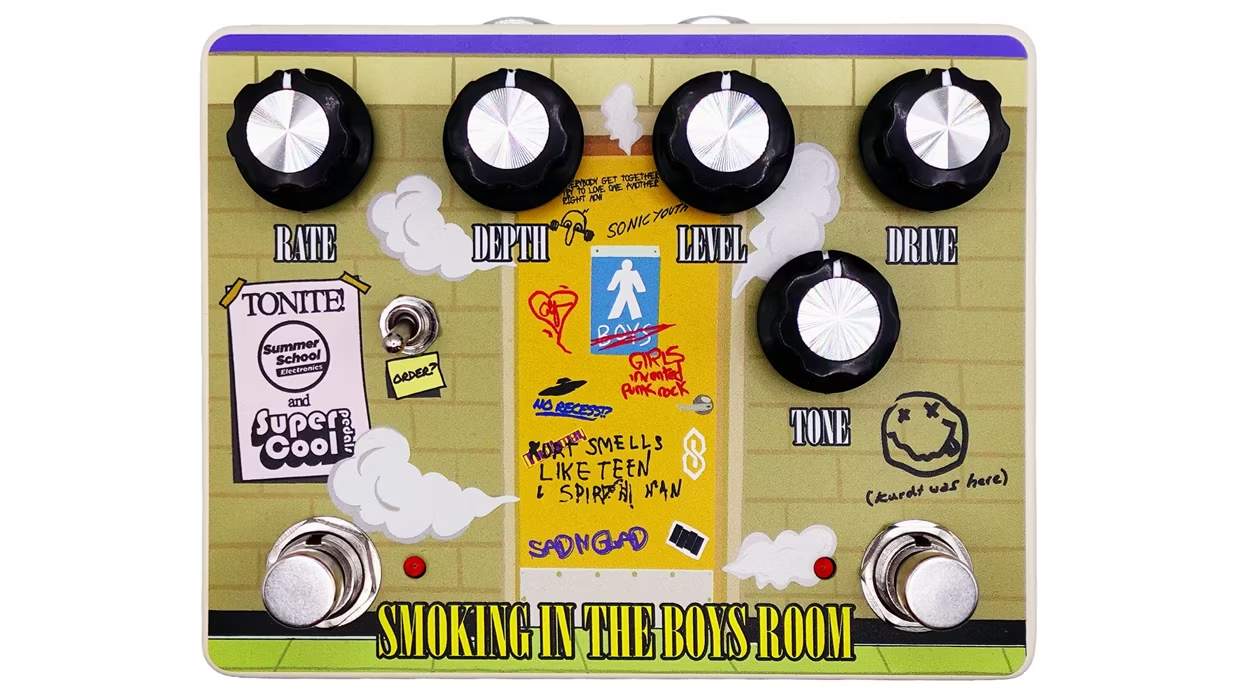

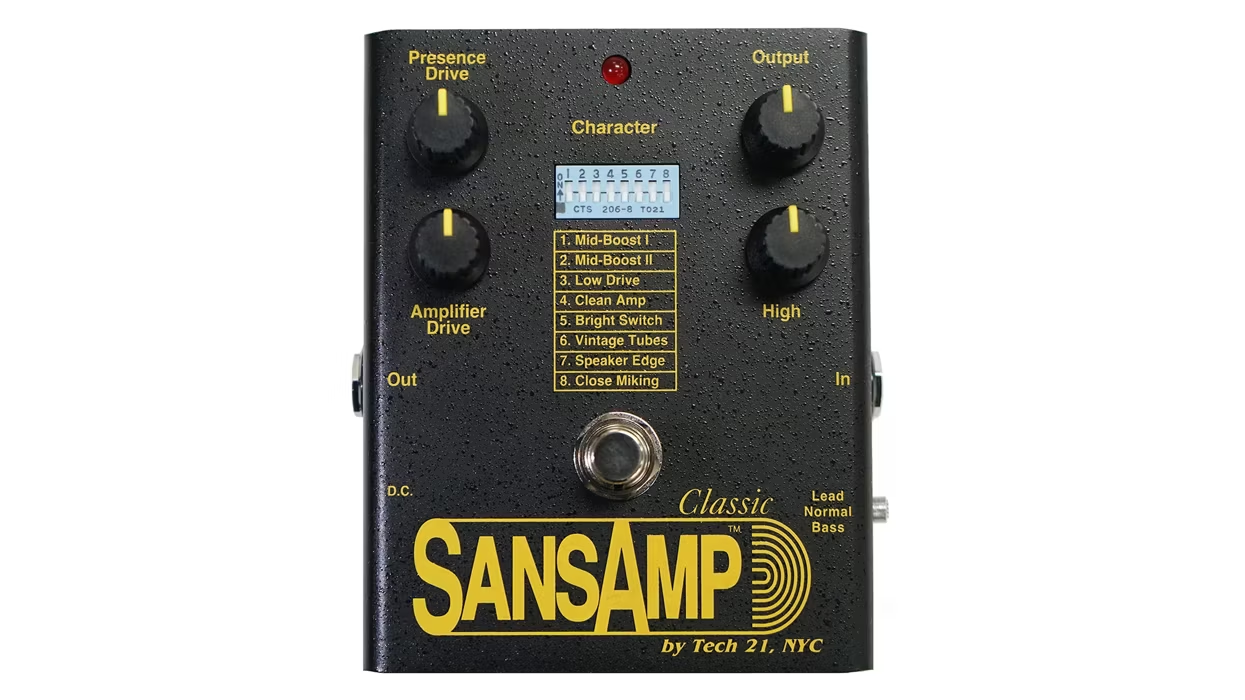

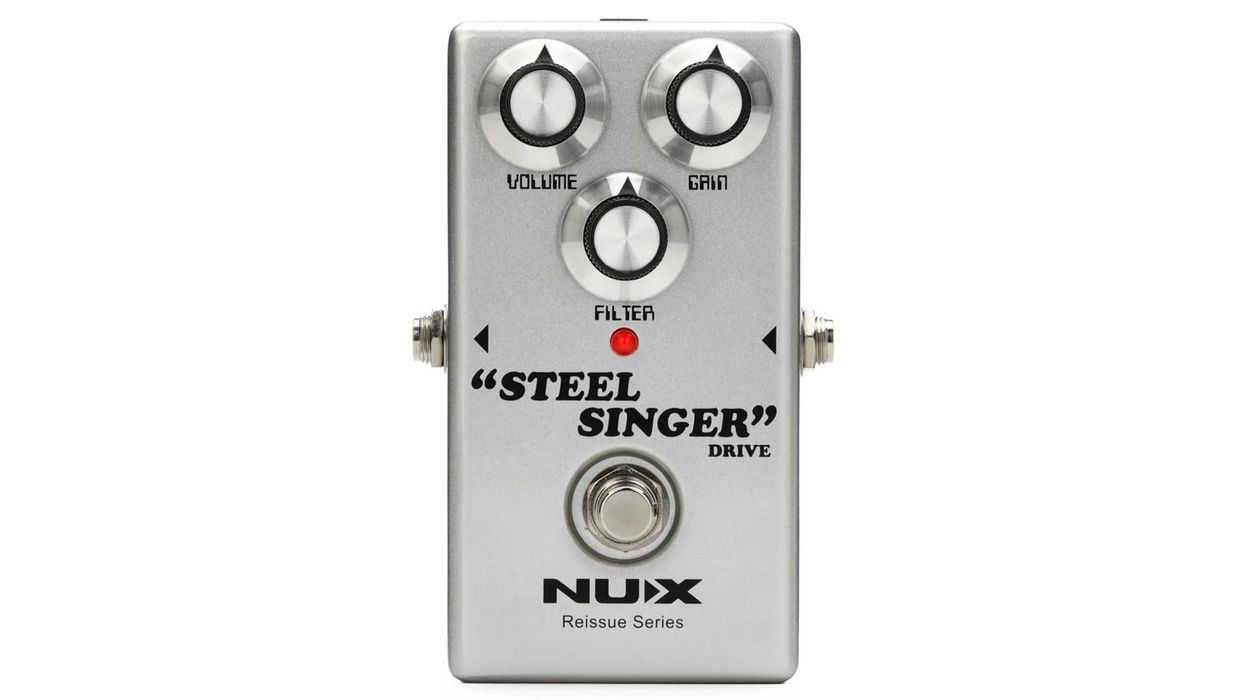
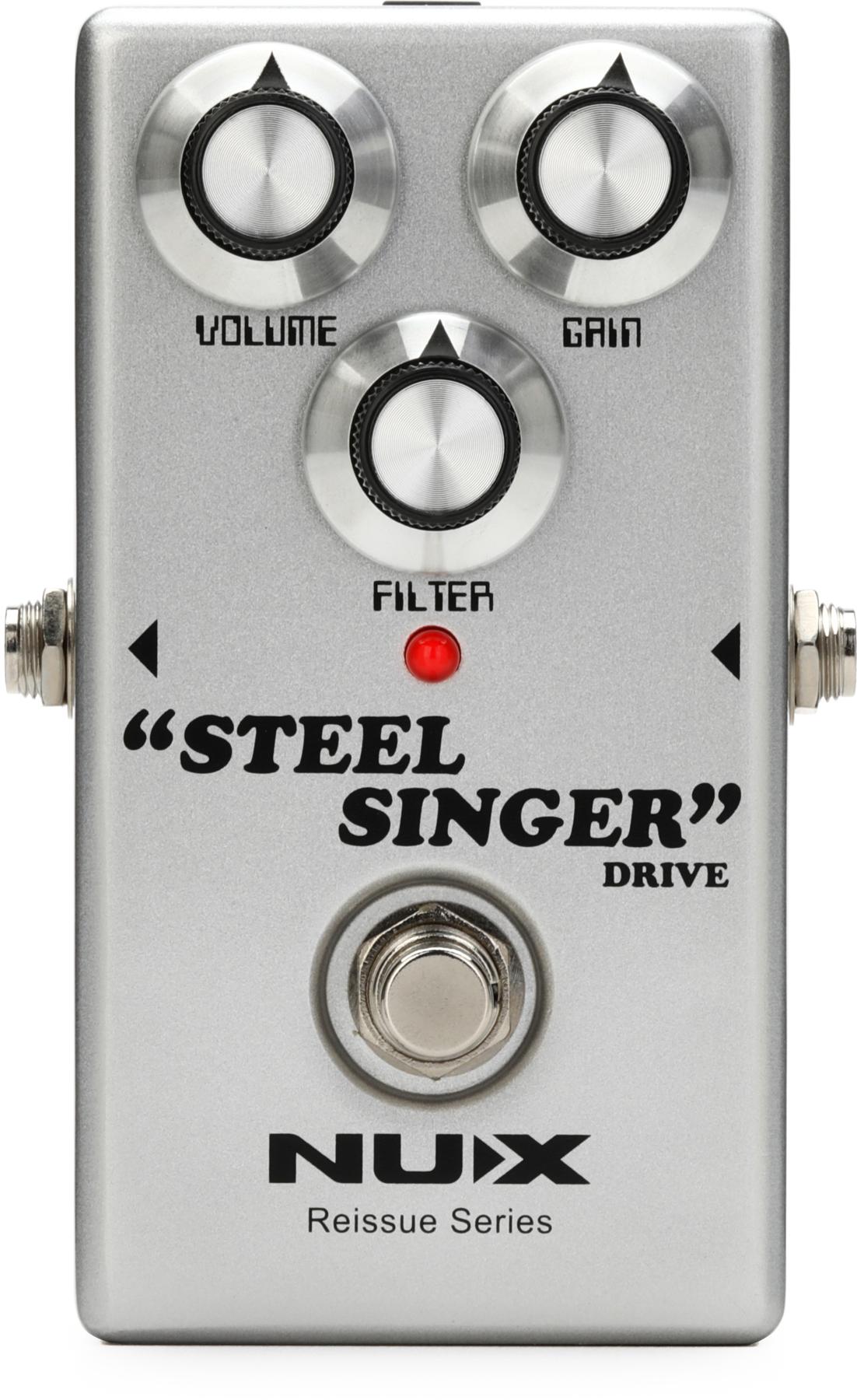

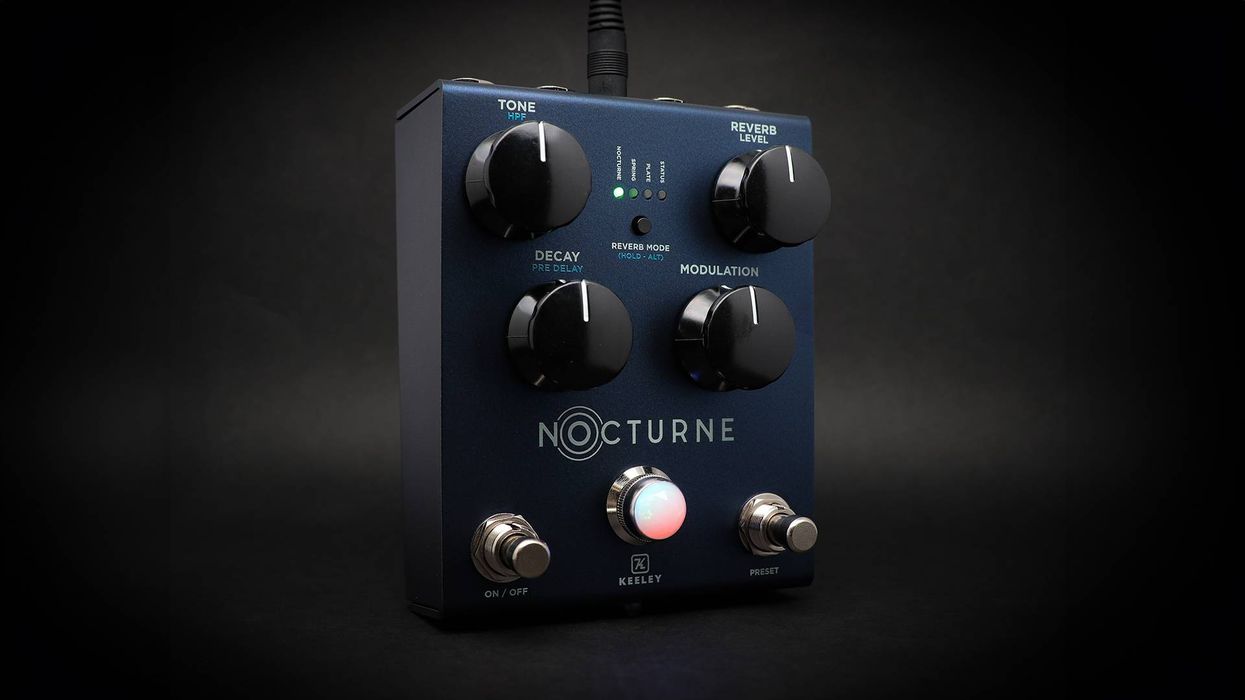
![Rig Rundown: Russian Circles’ Mike Sullivan [2025]](https://www.premierguitar.com/media-library/youtube.jpg?id=62303631&width=1245&height=700&quality=70&coordinates=0%2C0%2C0%2C0)

